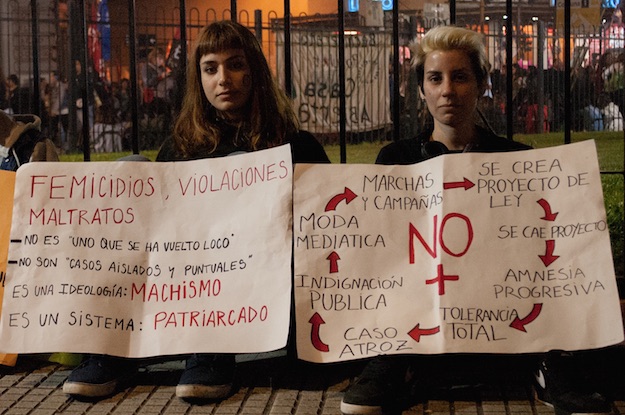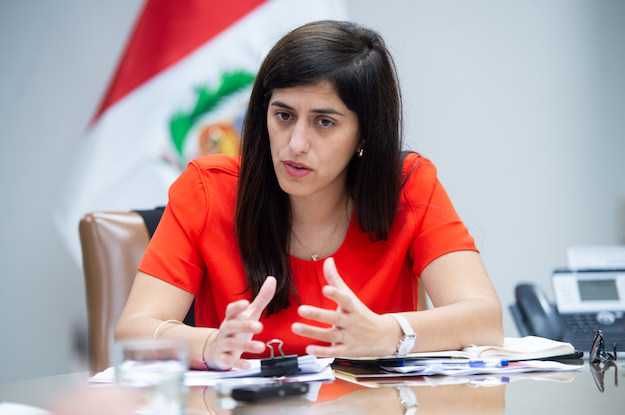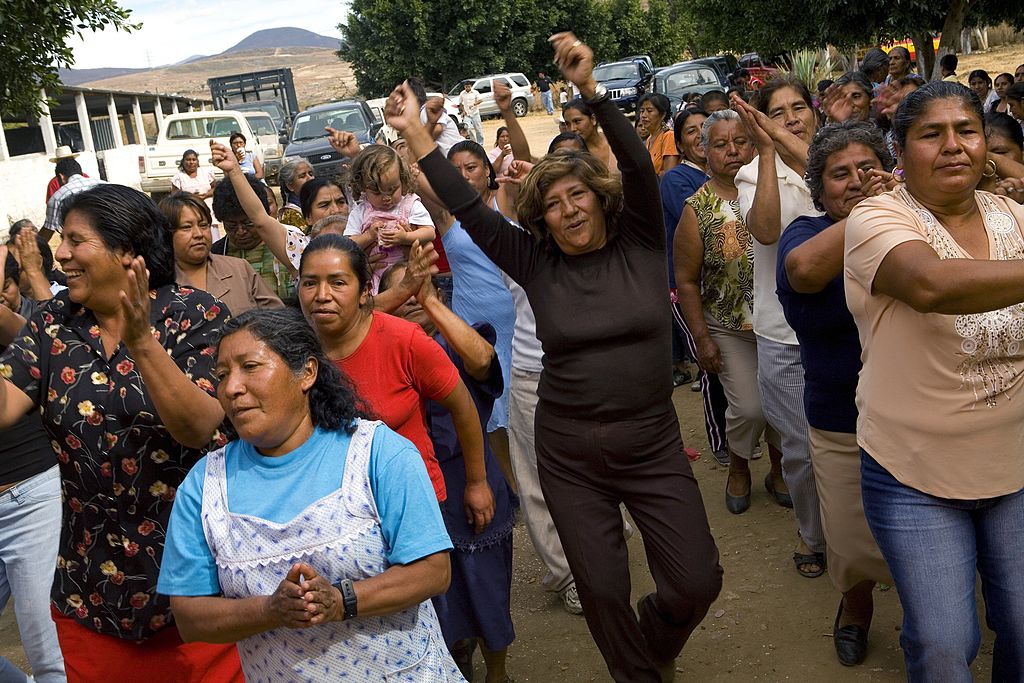Whoever wins Argentina’s presidential runoff on November 22, they will be expected to deal with the country’s staggering rates of gender violence. A femicide occurs in Argentina on average once every 30 hours. But it isn’t just the scope of the problem that has the candidates scurrying to suggest solutions. It is also thanks to the persistent advocacy of a group called Ni Una Menos, and a little help from that most powerful tool in the activist’s arsenal: social media.
After hearing of the killing of yet another young Argentine – this time of Chiara Páez, a 14-year-old girl who was pregnant when murdered by her boyfriend – radio journalist Marcela Ojeda had had enough. Ojeda took to Twitter to rally her fellow citizens to push for change, and found that she wasn’t alone. Within a month, Ojeda had assembled a collective of journalists, artists and social activists under the name Ni Una Menos, or Not One Less. The group coordinated a demonstration in Buenos Aires in June to urge the government to enact policies against femicide. Nearly 300,000 people showed up.
The group then turned its attention to the presidential elections, again using Twitter to ask the candidates, “What are your proposals to combat violence against women?” The resulting public pressure led directly to 12 of 14 pre-candidates posting their promise to fight gender violence. The three leading candidates at the time – Daniel Scioli, Mauricio Macri and Sergio Massa – all pledged to enact policies to help prevent femicides. Others went further. The Broad Progressive Front’s Margarita Stolbizer released a plan for her first 100 days in office, as well as objectives for the medium term. Nicolás del Caño of the Socialist Worker’s Party presented a bill to Congress for the implementation of a National Emergency Plan against violence toward women.
But there is more to activism than a well-placed tweet, as Ojeda told AQ in an interview. “There is a job behind [each] tweet or Facebook post. We have to call, ask questions, follow everything that is announced,” Ojeda said. She plans to “bombard” whoever wins the election to remind them of their commitment.
Ni Una Menos’ aim is for the government to announce a National Plan of Action for the Prevention, Assistance and Eradication of Violence against Women. Without such a plan, a 2009 law meant to address the issue will lack the necessary budget and concrete policies needed to reduce violence against women. With at least 40 reported femicides in Argentina since the protests in June, and an appalling 10 femicides in eight days earlier this month, there is plenty of work to be done.
“Civil society should – we all should – get involved,” said Ojeda, “because change has to be structural, and primarily cultural, and that’s why violence toward women is an issue that includes, touches, strikes and grieves all of us.”
Ojeda plans to keep the pressure on – and not just via social media. Ni Una Menos will hold another march on November 25, the International Day for the Elimination of Violence against Women. With continued activisim, and the right set of tools, the group will hope to make its namesake a reality.








